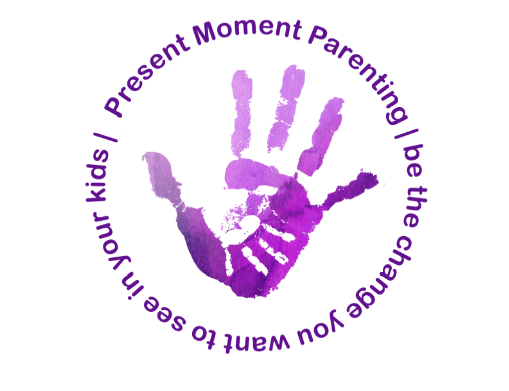
There comes a time in the life of every parent when you wish the word “Why” had never been invented. I recall with my own kids how a 5-minute bedtime story suddenly became a 30-minute ordeal:
The bear went over the mountain.
Why?
To get to the other side.
Why?
To visit his friend.
Why?
Because he was lonely.
Why?
Well, if you’ll let me carry on reading we’ll find out. Ok, so sentence number two… It was a lovely warm day.
Why?
You know how the story goes!
So before you move on from why, I have two more why questions for you…
Why do kids stop asking questions? And why is it important for us to encourage them to continue?
The bear went over the mountain.
Why?
To get to the other side.
Why?
To visit his friend.
Why?
Because he was lonely.
Why?
Well, if you’ll let me carry on reading we’ll find out. Ok, so sentence number two… It was a lovely warm day.
Why?
You know how the story goes!
So before you move on from why, I have two more why questions for you…
Why do kids stop asking questions? And why is it important for us to encourage them to continue?
There are three main reasons that children stop questioning. The first is that we discourage the questions. Understandably we get tired of answering a million why’s every day and our tone and attitude towards questioning becomes quite clear. Children get the message that their questioning is annoying. Perhaps they even get the message that they are annoying.
The second is that we encourage a very narrow, limited way of thinking. We give definite answers and we don’t explore possibilities. We train our children to think like we think; to believe what we believe; to do things the way they have always been done.
The third is that we are afraid of (and so teach our kids to be afraid of) making mistakes. Children learn that there is a right and a wrong answer to any given question and it is bad to give the wrong answer – this will be met with red lines on your page, bad marks, failure and disappointment.
But why would we want to encourage this questioning when it drives us nuts?
Well, because the quality of your life is directly related to the quantity and quality of the questions that you ask. Questions open doors, they explore new possibilities, they take us outside of limiting beliefs and outdated ways of thinking and being.
Questions really are at the very fabric of being alive. They imply curiosity and interest and enthusiasm and a willingness to learn and grow.
It is when we stop questioning and start assuming that we know the answers that our life light goes out. We become conditioned and trained and dull and habitual. We stop seeking alternative ways of thinking and being and doing and we become mundane. And our lives become mundane.
And then we learn to complain instead of questioning. We whine about the hamster wheel of life without questioning how to get off it. We moan about our relationships instead of seeking alternative answers to how to engage. We hate our jobs but we don’t question why we have ended up where we are and what different choices we could make.
It becomes ingrained in us to fear asking questions. We still have that child within that doesn’t want to be annoying, that doesn’t want to be the one to ask a stupid question, what is terrified of the consequences of getting the answers wrong. And so we live small. And constricted. And below our full potential.
If we want our children to live rich, fulfilling, exciting lives then we have to encourage questions. We need to encourage the “why’s” of the 4 year old to everything we say, and the “why’s” of the teenager to everything we do. We need to embrace a questioning attitude to our own lives and habits and choices. We need to step out of our comfort zones and risk failure and all the learning that comes with it.
Here are some tips to get you going…
When your child asks you why they have to do or not do something never answer with “because I said so”. If you have a good reason, explain it to them. If you don’t, then start questioning why they have to do it yourself. (You may find that there are many things you expect just because your parents did it that way or someone else told you it should be that way).
Question everything that you believe. From the most basic daily trivialities (the wall is solid) to the most fundamental life issues (I was born) to the things that limit you (I am not good enough) and see what happens. Some lines of questioning can allow you to let go of stagnation and move into new realms, and others may strengthen what you already believe. Either way there will be a depth to your life where previously you were just floating on the surface.
Don’t answer all your child’s questions. Teach them how to find answers in the world and send them on a journey of exploration and curiosity. Point them in the direction of knowledgeable people, send them to the library, show them how to use search engines, help them to set up experiments. Be a model of excitement in finding out the answers to things you don’t know and how much you learn along the way.
Ask your child questions. Ask deep, open ended, thought provoking questions. Even to the little ones. Encourage them to ponder things; to not need to come up with quick answers; to not know the answer at all.
As much as possible, refrain from showing irritation when your child asks questions. If you’re really not up for it, let them know you’ll be happy to continue later.
Treat all failure as an exercise in learning. Tell your kids about Edison failing hundreds of times before figuring out the light bulb. Give them examples from your own life where you got something wrong and it helped you to grow. When they get something wrong help them to focus on what they can learn and how this can help them to grow.
If your child asks deep and meaningful questions about life / themselves / God / etc, don’t give them a standard practiced response. Rather turn the question back to the questioner. Say something like, “Wow, that is a really interesting question. I’d love to hear what you think about that”. You may just find you can learn a lot more from them than they can from you!
Most importantly encourage questions. Encourage questioning. Be a questioner yourself. There is a bright, magnificent world out there just waiting to be investigated and asking to be lived to the full, and it all starts with WHY!
The second is that we encourage a very narrow, limited way of thinking. We give definite answers and we don’t explore possibilities. We train our children to think like we think; to believe what we believe; to do things the way they have always been done.
The third is that we are afraid of (and so teach our kids to be afraid of) making mistakes. Children learn that there is a right and a wrong answer to any given question and it is bad to give the wrong answer – this will be met with red lines on your page, bad marks, failure and disappointment.
But why would we want to encourage this questioning when it drives us nuts?
Well, because the quality of your life is directly related to the quantity and quality of the questions that you ask. Questions open doors, they explore new possibilities, they take us outside of limiting beliefs and outdated ways of thinking and being.
Questions really are at the very fabric of being alive. They imply curiosity and interest and enthusiasm and a willingness to learn and grow.
It is when we stop questioning and start assuming that we know the answers that our life light goes out. We become conditioned and trained and dull and habitual. We stop seeking alternative ways of thinking and being and doing and we become mundane. And our lives become mundane.
And then we learn to complain instead of questioning. We whine about the hamster wheel of life without questioning how to get off it. We moan about our relationships instead of seeking alternative answers to how to engage. We hate our jobs but we don’t question why we have ended up where we are and what different choices we could make.
It becomes ingrained in us to fear asking questions. We still have that child within that doesn’t want to be annoying, that doesn’t want to be the one to ask a stupid question, what is terrified of the consequences of getting the answers wrong. And so we live small. And constricted. And below our full potential.
If we want our children to live rich, fulfilling, exciting lives then we have to encourage questions. We need to encourage the “why’s” of the 4 year old to everything we say, and the “why’s” of the teenager to everything we do. We need to embrace a questioning attitude to our own lives and habits and choices. We need to step out of our comfort zones and risk failure and all the learning that comes with it.
Here are some tips to get you going…
When your child asks you why they have to do or not do something never answer with “because I said so”. If you have a good reason, explain it to them. If you don’t, then start questioning why they have to do it yourself. (You may find that there are many things you expect just because your parents did it that way or someone else told you it should be that way).
Question everything that you believe. From the most basic daily trivialities (the wall is solid) to the most fundamental life issues (I was born) to the things that limit you (I am not good enough) and see what happens. Some lines of questioning can allow you to let go of stagnation and move into new realms, and others may strengthen what you already believe. Either way there will be a depth to your life where previously you were just floating on the surface.
Don’t answer all your child’s questions. Teach them how to find answers in the world and send them on a journey of exploration and curiosity. Point them in the direction of knowledgeable people, send them to the library, show them how to use search engines, help them to set up experiments. Be a model of excitement in finding out the answers to things you don’t know and how much you learn along the way.
Ask your child questions. Ask deep, open ended, thought provoking questions. Even to the little ones. Encourage them to ponder things; to not need to come up with quick answers; to not know the answer at all.
As much as possible, refrain from showing irritation when your child asks questions. If you’re really not up for it, let them know you’ll be happy to continue later.
Treat all failure as an exercise in learning. Tell your kids about Edison failing hundreds of times before figuring out the light bulb. Give them examples from your own life where you got something wrong and it helped you to grow. When they get something wrong help them to focus on what they can learn and how this can help them to grow.
If your child asks deep and meaningful questions about life / themselves / God / etc, don’t give them a standard practiced response. Rather turn the question back to the questioner. Say something like, “Wow, that is a really interesting question. I’d love to hear what you think about that”. You may just find you can learn a lot more from them than they can from you!
Most importantly encourage questions. Encourage questioning. Be a questioner yourself. There is a bright, magnificent world out there just waiting to be investigated and asking to be lived to the full, and it all starts with WHY!







 RSS Feed
RSS Feed